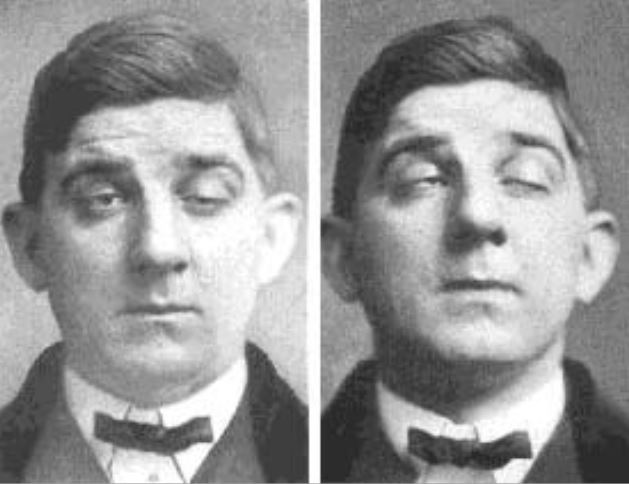Playlist
Show Playlist
Hide Playlist
Congenital Myasthenic Syndrome (CMS)
-
Slides Strowd Other NMJ Disorders.pdf
-
Download Lecture Overview
00:01 The last condition we'll talk about is Congenital Myasthenia. 00:05 This is myasthenia gravis. 00:07 Like we see in adults except it's not inflammatory. 00:11 This condition owes to some type of genetic abnormality, that impairs acetylcholine transmission. 00:18 Recall that the acetylcholine receptor lies on the postsynaptic membrane and is composed of many different proteins. 00:26 Mutation in any of those proteins can contribute to a genetic abnormality that causes congenital myasthenia. 00:33 To the think about are the slow channel syndrome. 00:36 This is an autosomal dominant inherited disorder of neuromuscular junction transmission and patients present with prominent bulbar findings, more so than generalized weakness, which can also be present. 00:47 Another condition to be aware of is acetylcholinesterase deficiency. 00:50 The lack of the acetylcholinesterase enzyme impairs the ability to break down acetylcholine and you get over activation or stimulation of the muscle membrane, and deactivation desensitization of the muscle. 01:03 Acetylcholinesterase deficiency is an inherited disorder that presents with weakness and poor response to myasthenia gravis treatment, so some important congenital causes of myasthenia gravis.
About the Lecture
The lecture Congenital Myasthenic Syndrome (CMS) by Roy Strowd, MD is from the course Disorders of the Neuromuscular Junctions.
Included Quiz Questions
Which of the following is not true of congenital myasthenia?
- Congenital myasthenia is often an inflammatory condition
- Congenital myasthenia is caused by a genetic abnormality of ACh transmission
- Slow channel syndrome is an autosomal dominant inherited disorder of NMJ transmission
- AChE deficiency is an inherited disorder that results in weakness and decrement
- AChE deficiency typically has a poor response to MG treatment
Customer reviews
5,0 of 5 stars
| 5 Stars |
|
5 |
| 4 Stars |
|
0 |
| 3 Stars |
|
0 |
| 2 Stars |
|
0 |
| 1 Star |
|
0 |




